Unleashing the Power of Off-Page SEO: Boosting Your Online Visibility Beyond Your Website
Off-Page SEO: Boosting Your Online Visibility Beyond Your Website
In the realm of search engine optimization (SEO), there are two key components that work hand in hand to improve your website’s visibility and rankings: on-page SEO and off-page SEO. While on-page SEO focuses on optimizing elements within your website, such as content and meta tags, off-page SEO extends beyond your site to build authority, credibility, and popularity. In this article, we will delve into the world of off-page SEO and explore its significance in enhancing your online presence.
Off-page SEO refers to all the activities undertaken outside of your website to improve its search engine rankings. It primarily revolves around building high-quality backlinks from authoritative websites to your own. Backlinks act as votes of confidence from other websites, indicating to search engines that your site is trustworthy and valuable.
One of the most effective strategies for off-page SEO is link building. However, it’s important to note that not all links are created equal. Search engines consider the quality, relevance, and authority of the linking sites when evaluating backlinks. Acquiring links from reputable websites within your industry or niche can significantly boost your site’s credibility and organic traffic.
There are various methods for building quality backlinks. Guest blogging is a popular approach where you contribute informative articles or blog posts to other websites in exchange for a link back to your site. This not only helps you gain exposure to a wider audience but also establishes you as an authority in your field.
Another effective tactic is leveraging social media platforms. By sharing valuable content from your website across social media channels, you can attract engagement and encourage others to share it further. This can lead to increased visibility, brand awareness, and potentially more inbound links.
In addition to link building, off-page SEO also encompasses other activities that contribute to improving your online reputation. Online reviews play a crucial role in establishing trust with potential customers. Encouraging satisfied customers to leave positive reviews on reputable review platforms can enhance your brand’s credibility and attract more visitors.
Engaging in online communities and forums related to your industry is another valuable off-page SEO strategy. By actively participating and providing insightful contributions, you can build relationships with like-minded individuals, establish yourself as an expert, and gain exposure to potential customers.
It’s important to note that off-page SEO is an ongoing process that requires consistent effort and monitoring. Regularly assessing your backlink profile, removing toxic or low-quality links, and adapting your strategy based on industry trends are essential for maintaining a healthy off-page SEO profile.
In conclusion, off-page SEO is a vital component of any comprehensive SEO strategy. By building high-quality backlinks, engaging with online communities, and cultivating a positive online reputation, you can enhance your website’s visibility in search engine results pages (SERPs). Remember that off-page SEO takes time and dedication but can yield significant long-term benefits for your online presence.
5 Common Queries Answered: Off-Page SEO Explained, Tips for Improvement, Best Practices, Success Metrics, and Link Building Strategies
- What is off-page SEO and why is it important?
- How can I improve my off-page SEO?
- What are the best practices for off-page SEO?
- How can I measure the success of my off-page SEO efforts?
- What are the most effective ways to build links for off-page SEO?
What is off-page SEO and why is it important?
Off-page SEO refers to the activities and strategies implemented outside of your website to improve its search engine rankings. It involves optimizing factors that are not directly controlled on your site, such as building high-quality backlinks, social media engagement, online reputation management, and brand promotion across various platforms.
Off-page SEO is crucial for several reasons:
- Enhanced Search Engine Rankings: Off-page SEO plays a significant role in determining how search engines perceive the relevance, credibility, and authority of your website. Quality backlinks from reputable websites act as votes of confidence, signaling to search engines that your site is trustworthy and deserves higher rankings in search results.
- Increased Website Visibility: By implementing effective off-page SEO strategies, you can expand your website’s visibility beyond its own domain. Building backlinks from authoritative websites and engaging with relevant online communities can expose your brand to a wider audience, potentially driving more organic traffic to your site.
- Building Online Authority: Off-page SEO helps establish your website as an authority within your industry or niche. When other reputable websites link back to yours or cite it as a valuable resource, it enhances your credibility and expertise in the eyes of both search engines and users.
- Brand Awareness and Reputation Management: Off-page SEO activities like social media engagement, online reviews, and participation in industry forums contribute to brand awareness and reputation management. Positive reviews and active involvement in relevant communities can build trust with potential customers while fostering a positive online reputation for your brand.
- Long-Term Sustainability: Unlike on-page SEO factors that can be easily manipulated or changed within your website, off-page SEO signals are more difficult to manipulate artificially. Search engines place emphasis on external validation through quality backlinks and user-generated content when determining rankings. This makes off-page SEO efforts more sustainable in the long run.
It’s important to note that off-page SEO should be approached ethically and organically. Engaging in black hat techniques like buying low-quality backlinks or spamming online communities can result in penalties from search engines, damaging your website’s reputation and rankings.
In summary, off-page SEO is crucial for improving search engine rankings, increasing website visibility, establishing online authority, managing brand reputation, and driving long-term sustainable growth. By implementing effective off-page SEO strategies, you can boost your website’s credibility and attract more organic traffic, ultimately leading to increased conversions and business success.
How can I improve my off-page SEO?
Improving your off-page SEO requires a combination of strategic planning and consistent effort. Here are some effective techniques to enhance your off-page SEO:
- Build High-Quality Backlinks: Focus on acquiring backlinks from authoritative and relevant websites within your industry. Guest blogging, reaching out to influencers or industry experts for collaborations, and creating valuable content that naturally attracts backlinks are effective approaches.
- Social Media Engagement: Leverage social media platforms to promote your content, engage with your audience, and encourage sharing. This can increase visibility, drive traffic, and potentially attract more backlinks.
- Online Reputation Management: Monitor and manage your online reputation by actively encouraging positive reviews from satisfied customers on reputable review sites. Responding to reviews, addressing concerns promptly, and maintaining a positive brand image contribute to building trust.
- Participate in Online Communities: Engage in industry-specific forums, discussion boards, and social media groups related to your niche. Provide valuable insights, answer questions, and establish yourself as an authority in the field. This can lead to increased visibility and potential collaborations or partnerships.
- Influencer Marketing: Collaborate with influencers or bloggers who have a significant following within your target audience. Their endorsement or mention of your brand can generate awareness, credibility, and potentially attract more traffic to your site.
- Content Promotion: Actively promote your content through various channels such as email newsletters, social media platforms, industry newsletters, or press releases. This helps increase its reach and encourages others to link back to it.
- Monitor Backlink Profile: Regularly assess the quality of the backlinks pointing to your site using tools like Google Search Console or third-party SEO tools. Remove any toxic or low-quality links that could harm your rankings.
- Stay Updated with Industry Trends: Keep up-to-date with the latest trends in off-page SEO practices and search engine algorithms. Adapt your strategies accordingly to ensure long-term success.
Remember, off-page SEO is a continuous process that requires patience and consistent effort. It’s important to focus on building a natural and diverse backlink profile, fostering genuine relationships within your industry, and providing value to your audience. By implementing these techniques, you can improve your off-page SEO and enhance your online visibility and organic rankings over time.
What are the best practices for off-page SEO?
When it comes to off-page SEO, there are several best practices that can help you maximize your efforts and achieve better results. Here are some key practices to consider:
- Quality Link Building: Focus on acquiring high-quality backlinks from authoritative and relevant websites. Seek out reputable websites within your industry or niche and aim for natural link building opportunities. Avoid spammy tactics or purchasing links, as this can harm your site’s reputation.
- Guest Blogging: Contribute valuable content to reputable websites as a guest author in exchange for a link back to your site. Ensure that the content is informative, well-written, and relevant to the target audience of the hosting website.
- Social Media Engagement: Leverage social media platforms to promote your content and engage with your audience. Encourage sharing and interaction by providing valuable and shareable content that resonates with your target audience.
- Online Reviews: Encourage satisfied customers to leave reviews on reputable review platforms such as Google My Business, Yelp, or industry-specific review sites. Positive reviews can enhance your online reputation, credibility, and attract more customers.
- Influencer Marketing: Collaborate with influencers or industry experts who have a significant following in your niche. Their endorsement or mention of your brand can drive traffic, increase brand awareness, and potentially generate high-quality backlinks.
- Participate in Online Communities: Engage in relevant online communities, forums, or discussion boards related to your industry or niche. Provide valuable insights, answer questions, and establish yourself as an expert in the field. This can help you build relationships and attract potential customers.
- Monitor Your Backlink Profile: Regularly assess the quality of your backlinks using tools like Google Search Console or third-party SEO tools. Identify any toxic or low-quality links pointing to your site and take necessary actions like disavowing them to maintain a healthy backlink profile.
- Stay Updated with Industry Trends: Keep yourself informed about the latest trends, algorithm updates, and best practices in off-page SEO. This will help you adapt your strategies and stay ahead of the competition.
Remember, off-page SEO is an ongoing process that requires consistent effort, patience, and monitoring. It’s essential to focus on building a strong online reputation, acquiring high-quality backlinks, and engaging with your target audience to improve your website’s visibility and authority in search engine rankings.
How can I measure the success of my off-page SEO efforts?
Measuring the success of your off-page SEO efforts is crucial to understanding the impact of your strategies and making informed decisions for future optimizations. While off-page SEO can be challenging to quantify directly, there are several key metrics and tools you can utilize to gauge its effectiveness. Here are some ways to measure the success of your off-page SEO efforts:
- Backlink Analysis: Monitor the quantity and quality of backlinks pointing to your website. Tools like Ahrefs, Moz, or SEMrush provide insights into your backlink profile, including the number of referring domains, domain authority, anchor text distribution, and more. By tracking these metrics over time, you can assess whether your link building efforts are generating positive results.
- Organic Traffic: Analyze your website’s organic traffic using tools like Google Analytics. Look for increases in organic traffic over time, especially after implementing specific off-page SEO strategies. This indicates that your efforts are driving more visitors to your site through search engine rankings.
- Keyword Rankings: Keep track of how your target keywords are performing in search engine results pages (SERPs). Tools like Google Search Console or third-party rank tracking tools allow you to monitor keyword rankings and observe any improvements or declines. Higher rankings for relevant keywords suggest that your off-page SEO tactics are positively impacting search visibility.
- Referral Traffic: Examine referral traffic data in Google Analytics to identify which websites are sending visitors to yours through backlinks. By assessing the volume and quality of referral traffic from external sources, you can determine which websites are driving valuable traffic and potentially adjust your link building strategy accordingly.
- Social Media Engagement: Measure the engagement metrics on social media platforms where you share content related to your off-page SEO efforts. Track likes, shares, comments, retweets, or any other relevant engagement indicators across different social channels. Increased engagement suggests that your content is resonating with users and potentially attracting more attention and visibility.
- Brand Mentions: Monitor online mentions of your brand or website across the web. Tools like Google Alerts or social listening platforms can help you track brand mentions in real-time. An increase in brand mentions indicates that your off-page SEO activities are generating awareness and recognition.
- Conversion Rates: Assess the impact of your off-page SEO efforts on conversion rates. Analyze how many visitors from organic or referral sources are converting into customers or completing desired actions on your website. This data will help you understand if your off-page strategies are not only driving traffic but also generating valuable leads or sales.
Remember, measuring the success of off-page SEO is an ongoing process that requires continuous monitoring and analysis. By regularly assessing these metrics and comparing them to your goals, you can gain insights into the effectiveness of your off-page SEO efforts and make data-driven decisions to optimize your strategies further.
What are the most effective ways to build links for off-page SEO?
Building high-quality backlinks is a critical aspect of off-page SEO. Here are some effective ways to acquire quality links and boost your website’s online visibility:
- Guest Blogging: Identify authoritative websites in your industry or niche and offer to contribute valuable content as a guest blogger. Ensure that your guest posts provide informative and engaging content, relevant to the target website’s audience. In return, you can request a backlink to your site within the author bio or content.
- Broken Link Building: Find broken links on reputable websites that are relevant to your industry. Reach out to the website owner or webmaster, notifying them of the broken link and suggesting your own relevant content as a replacement. This approach offers value to both parties by helping them fix their broken link while gaining a valuable backlink for yourself.
- Influencer Outreach: Identify influential individuals or thought leaders in your industry who have a significant online following. Establish relationships with them through social media engagement, sharing their content, and providing meaningful comments on their blog posts or articles. Over time, this engagement may lead to opportunities for collaboration or mentions on their platforms, resulting in valuable backlinks.
- Social Media Engagement: Actively promote and share your website’s content on social media platforms such as Facebook, Twitter, LinkedIn, and Instagram. Engage with your audience by responding to comments, starting conversations, and encouraging social sharing of your content. This can lead to increased visibility and potential backlinks from users who find value in your posts.
- Online Directories and Listings: Submitting your website to reputable online directories and listings can help improve its visibility while generating quality backlinks. Look for directories specific to your industry or niche that have high domain authority (DA) scores.
- Content Promotion: Create compelling and shareable content such as infographics, videos, case studies, or comprehensive guides that provide unique insights or address common challenges within your industry. Promote this content through various channels, including social media, email newsletters, and outreach to relevant websites or influencers who may find it valuable and link back to it.
- Participate in Online Communities and Forums: Engage in industry-related online communities, forums, and discussion boards where you can contribute valuable insights and answer questions. Establish yourself as an authority by providing helpful information and building relationships with other community members. This can lead to opportunities for others to link back to your website when referencing your expertise.
Remember, the key to successful link building is focusing on quality over quantity. Aim for links from authoritative websites that are relevant to your niche or industry. Building a diverse portfolio of high-quality backlinks over time will significantly enhance your off-page SEO efforts and improve your website’s search engine rankings.

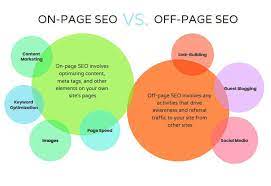


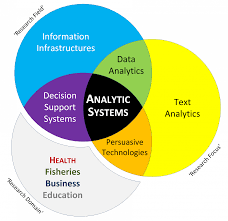

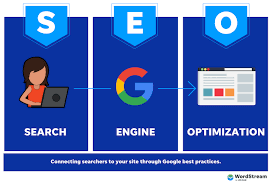


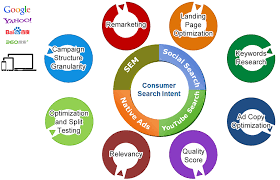

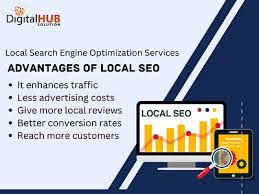


Leave a Comment